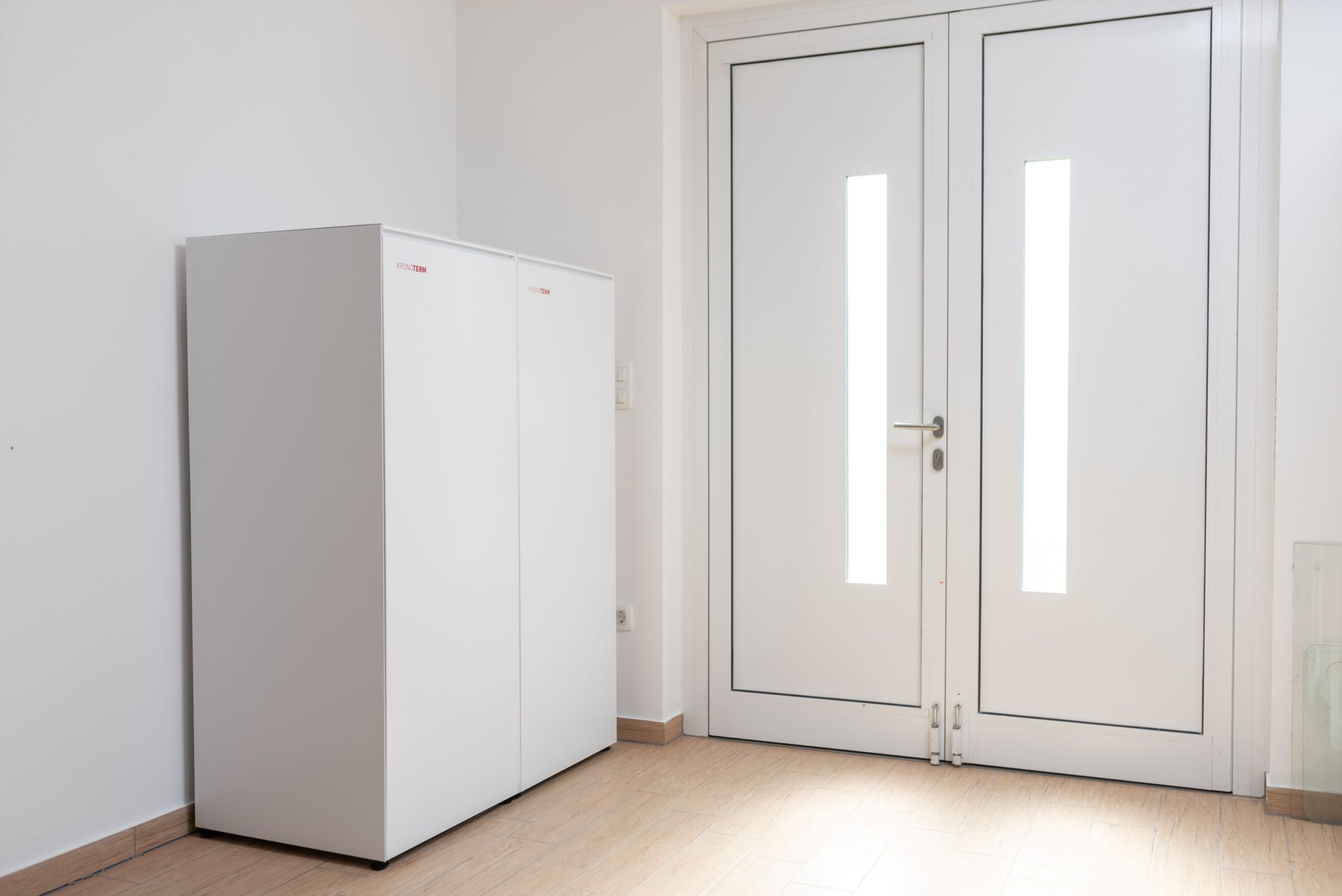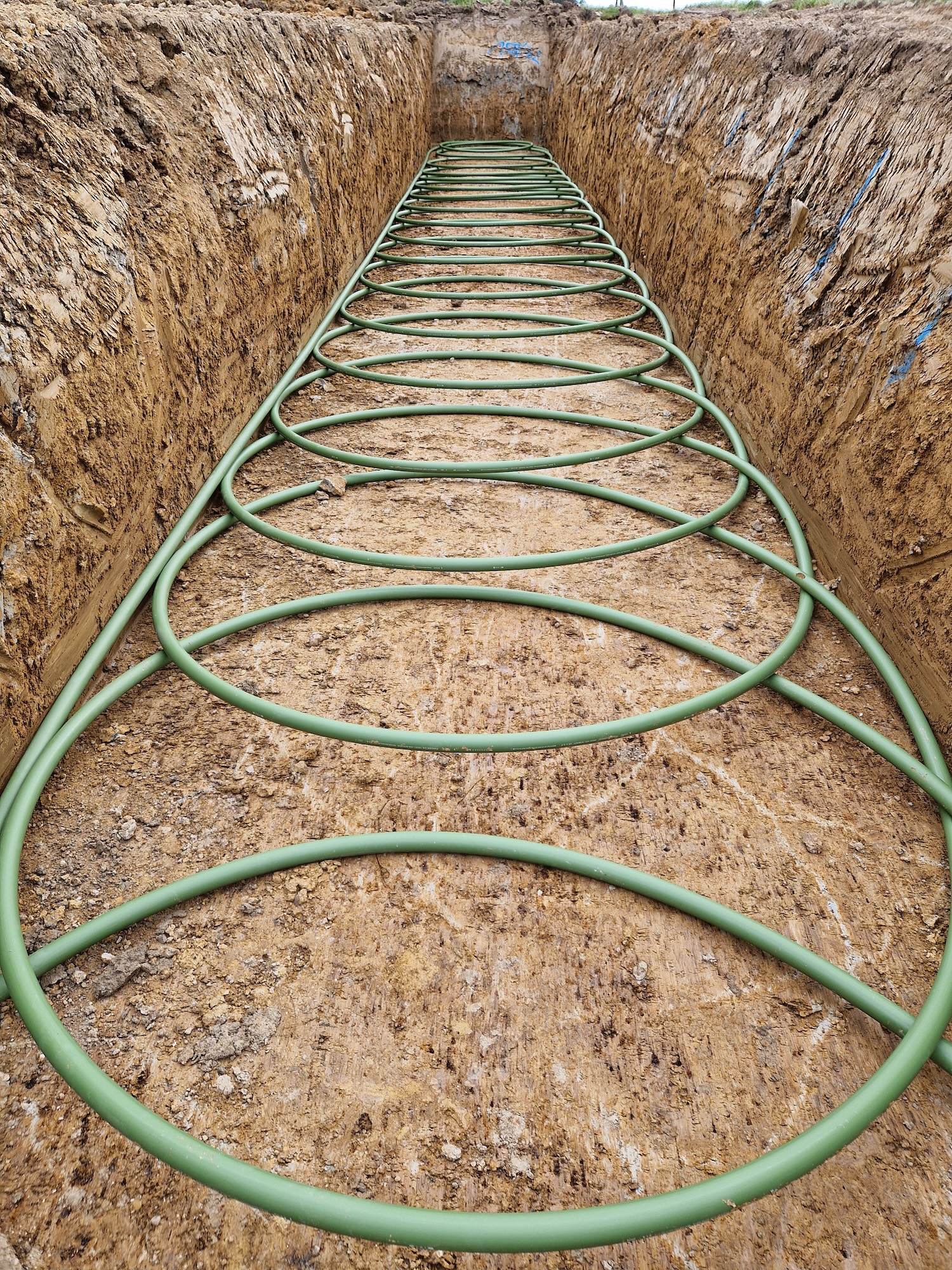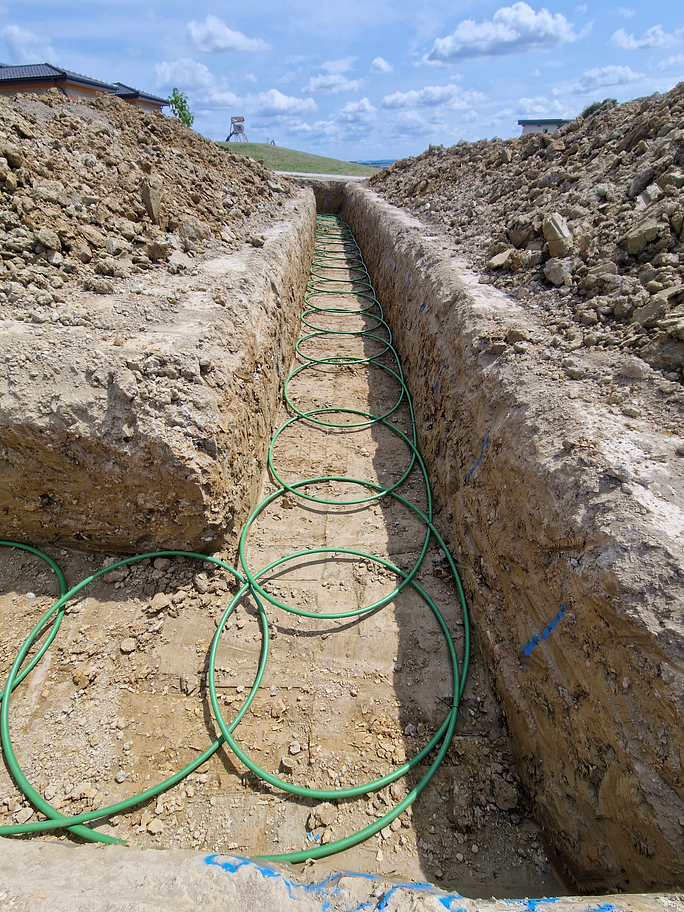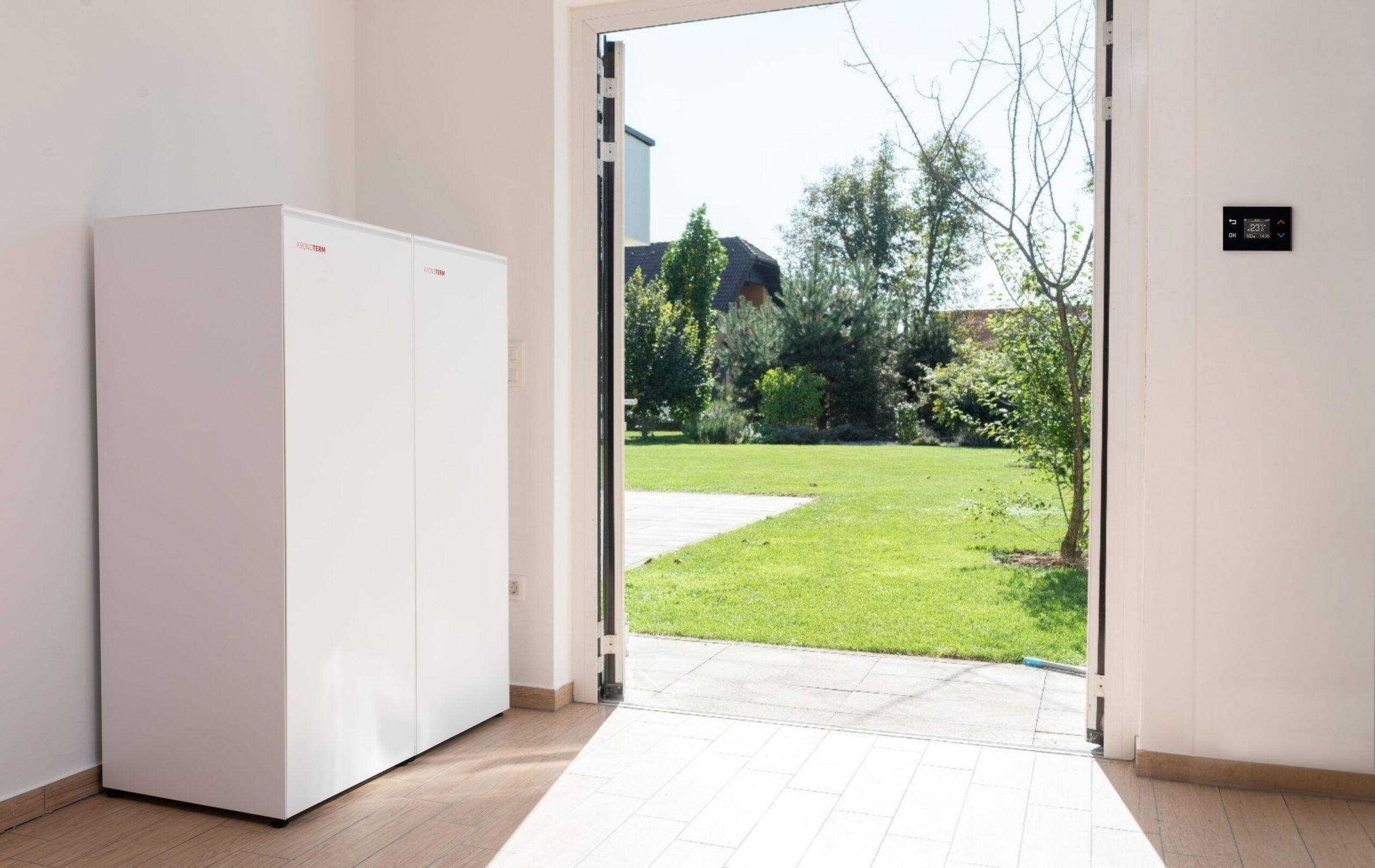When deciding to install a geothermal heat pump, it’s essential to carefully consider the choice of heat source and collector. Do we have access to groundwater, or would it be more practical to use the earth’s own heat? How much space is available on our property, and what level of investment are we comfortable with? Answering these questions is key to finding the optimal solution that meets our needs and budget.
Groundwater
Groundwater is the most energy-efficient source, maintaining a stable temperature between 7 and 12 degrees Celsius throughout the year. To utilize it, two wells are needed: a suction well with a submersible pump and an injection well for returning the cooled and uncontaminated groundwater. The water must be chemically analyzed, and a water permit obtained before use.
Vertical Ground Collector
When sufficient groundwater isn’t available, the ground’s stored heat can be used. Below the depth of 8 meters, the ground temperature remains constant. A borehole is drilled to insert a collector, and the surrounding space is filled with a special material to enhance heat transfer. For greater heating needs, multiple collectors can be connected in series with a geothermal shaft. The collectoris non-intrusive, allowing the ground above to be paved or asphalted.





